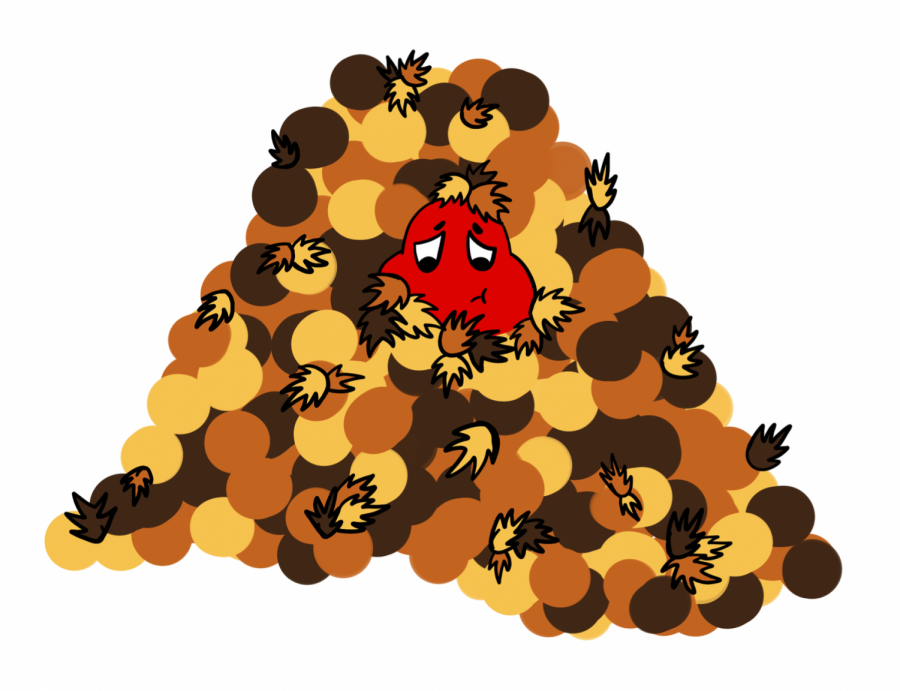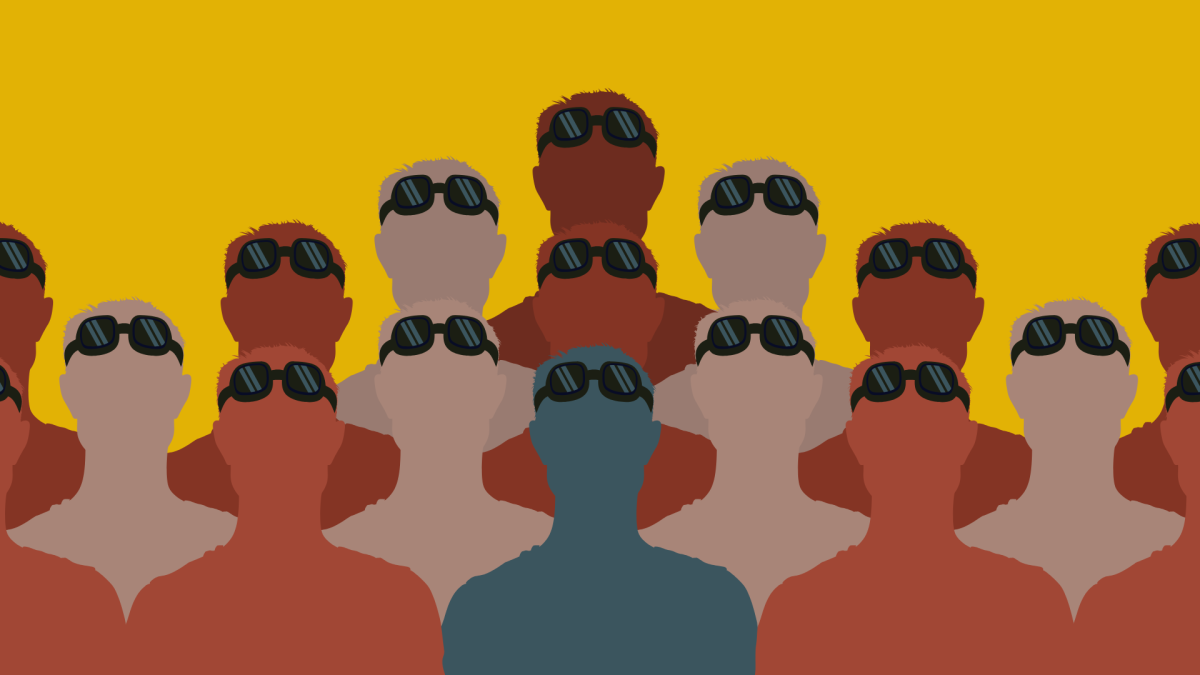OPINION: How to combat seasonal depression
November 3, 2021
Jovial events like Halloween and homecoming recently passed, and the crisp 60-something-degree weather feels just right. You can wear a t-shirt or a hoodie and feel perfectly fine either way. However, when temperatures further cool and the days shorten, the beautiful fall and winter months can have some unexpected consequences on mental health.
Grey skies and barren branches leave a palpable heaviness in your mind. You leave for class and all you can feel is cold, lethargy and more cold. It is also possible that you notice a shift in mood as well.
Seasonal depression, also known as seasonal affective disorder (SAD), is a specifier of major depressive disorder (MDD). It often sets in during fall and continues through winter and begins to improve in the spring. Common symptoms include anxiety, sadness, fatigue, difficulty concentrating and an increased craving of carbohydrates.
The lack of sunlight is thought to be the main cause of seasonal depression. The Cleveland Clinic notes the lack of sunlight can result in lower levels of serotonin and higher levels of melatonin. Your circadian rhythm can deregulate from these sunlight changes, which can make you feel sluggish throughout the day.
College students tend to be disproportionately affected by SAD. Sungjin Im, a psychology professor at WKU, writes that according to Low and Feissner (1998), “about 20% of college students in this study experienced symptoms of MDD with a seasonal pattern.” This is quite a higher prevalence compared to the 1.5% to 9% of the general population that is affected.
Some factors can increase the likelihood of experiencing seasonal depression. Im explains that “being young and female, having a family history of mood disorders and living at higher latitudes” are risk factors.
It is possible to experience lower moods in fall and winter even without having MDD. There is a milder form known as the “winter blues” that affects 10% to 20% of people in America.
Personally, I think having shorter daylight hours is the most challenging part of the season. It feels like nighttime a lot earlier, as if the day is being shaved in half. Dark evenings make me want to call it a night at 6 p.m. and isolate myself in a blanket burrito.
Winter is an introspective season, but it is important not to ruminate in excess, as this can further affect your mood. Professor Im provided five steps to cope with the symptoms of seasonal depression:
“Engage in outdoor exercise or other activities to increase exposure to natural light.”
Exercise is a great way to boost your mood, and the cooler weather allows you to do so outdoors without drowning in a pool of your own sweat. I find that bike riding is especially fun in the fall.
“Set and follow a daily routine to maintain a healthy circadian rhythm.”
Resist the temptation to hit snooze on your alarms. Going to bed and waking up at the same time every day will keep your biological clock ticking properly.
“Engage in activities that are enjoyable and meaningful to stay motivated and spirited.”
Approaching finals and academic pressure can blindside you from the activities and people you enjoy most. Try to maintain a balance between entertainment and work.
“Consider using light therapy lamps, which can emit either bright white light (2500 lux via visors) or infrared light (0.18 lux via visors).”
Light therapy will help combat the lack of sunlight in the winter. You can use a light therapy lamp while doing various activities indoors.
“If mood symptoms are present or worsen over time, consult a mental professional such as a psychologist or psychiatrist for treatment options or contact the WKU’s Counseling Center (270-745-3159).”
As with any other psychological struggle, you do not have to deal with it alone. Consider reaching out to professionals.
The winter blues is a common response to seasonal changes, so it is important to be able to recognize and normalize it. Winter can be a difficult season for many people, but it can also help to think of all the things you have to look forward to. Holidays, winter break or perhaps upcoming graduation are reminders that not everything is bleak.















